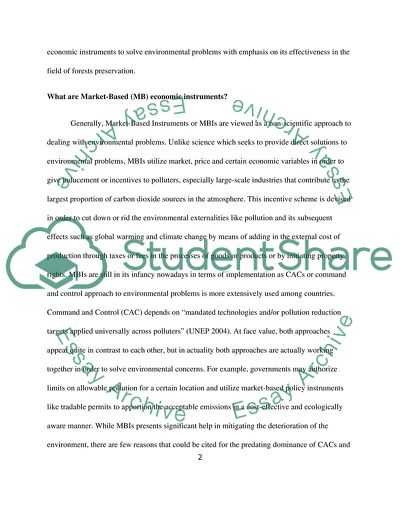Cite this document
(How Workable Are Market-Based Solutions to Environmental Problems Report Example | Topics and Well Written Essays - 1500 words, n.d.)
How Workable Are Market-Based Solutions to Environmental Problems Report Example | Topics and Well Written Essays - 1500 words. https://studentshare.org/macro-microeconomics/1805781-how-workable-are-market-based-solutions-to-environmental-problems-discuss-with-reference-to-the-example-of-either-forests-or-fisheries
How Workable Are Market-Based Solutions to Environmental Problems Report Example | Topics and Well Written Essays - 1500 words. https://studentshare.org/macro-microeconomics/1805781-how-workable-are-market-based-solutions-to-environmental-problems-discuss-with-reference-to-the-example-of-either-forests-or-fisheries
(How Workable Are Market-Based Solutions to Environmental Problems Report Example | Topics and Well Written Essays - 1500 Words)
How Workable Are Market-Based Solutions to Environmental Problems Report Example | Topics and Well Written Essays - 1500 Words. https://studentshare.org/macro-microeconomics/1805781-how-workable-are-market-based-solutions-to-environmental-problems-discuss-with-reference-to-the-example-of-either-forests-or-fisheries.
How Workable Are Market-Based Solutions to Environmental Problems Report Example | Topics and Well Written Essays - 1500 Words. https://studentshare.org/macro-microeconomics/1805781-how-workable-are-market-based-solutions-to-environmental-problems-discuss-with-reference-to-the-example-of-either-forests-or-fisheries.
“How Workable Are Market-Based Solutions to Environmental Problems Report Example | Topics and Well Written Essays - 1500 Words”. https://studentshare.org/macro-microeconomics/1805781-how-workable-are-market-based-solutions-to-environmental-problems-discuss-with-reference-to-the-example-of-either-forests-or-fisheries.


